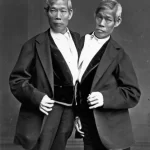O.J. Simpson Dead at 76 From Cancer, Family Announces
The post O.J. Simpson Dead at 76 From Cancer, Family Announces appeared first on Healthy Holistic Living.
Orenthal James Simpson, a name synonymous with both spectacular athletic achievements and profound controversy, passed away at the age of 76 after a battle with cancer. Known to the world as O.J. Simpson, his life story encapsulated the dramatic highs of a storied sports career and the shocking lows of criminal accusations that captured global attention. His death, announced by his family on the social media platform X (formerly Twitter), marks the end of a complex legacy that has long sparked debate and intrigue.
Once celebrated as one of the greatest running backs in American football, Simpson’s legacy is intricately tied to the sensational events off the field as much as his triumphs on it. From setting unprecedented records in the NFL to standing trial for the infamous murders of his ex-wife Nicole Brown Simpson and her friend Ron Goldman, Simpson remained a figure of perpetual public fascination. His death draws a line under a life that reflected both the potential for greatness and the capacity for profound fallibility.
The Dual Legacy of O.J. Simpson
O.J. Simpson’s ascent in the sports world began in the urban backdrop of San Francisco, where he first showcased his football prowess. His journey took him from high school fields to the nationally celebrated turf of the University of Southern California, where he won the Heisman Trophy in 1968. Known for his electrifying speed and power, Simpson set numerous records, including leading the nation in rushing yards for two consecutive years. His talent made him the first pick in the 1969 AFL-NFL Common Draft, chosen by the Buffalo Bills, where he continued to shatter records, notably becoming the first NFL player to rush over 2,000 yards in a single season—a record that still stands for the highest season yards-per-game average.
However, Simpson’s off-field life began to attract as much attention as his athletic achievements. His personal life, marked by his high-profile marriage to Nicole Brown Simpson and later tumultuous legal battles, often overshadowed his sports career. His charisma and celebrity status transitioned him smoothly into roles in broadcasting and acting, where he appeared in major television shows and movies, becoming a familiar face beyond the sports arenas.
The sharp contrast between his celebrated public persona and the private turmoil that followed him later in life poses a complex narrative. Simpson’s later years were dominated by legal issues, including his notorious murder trial in the 1990s, which ended in acquittal yet left a lasting stain on his reputation. This duality of success and scandal defines Simpson’s legacy, making his story a captivating study of fame, fallibility, and the American justice system.
The Infamous Trial of the Century
The most defining and controversial chapter in O.J. Simpson’s life began on June 17, 1994, when he was involved in a low-speed police chase that mesmerized millions around the world. Televised live, Simpson was seen riding in a white Ford Bronco, driven by his friend Al Cowlings, creating a surreal spectacle that symbolized the beginning of an unprecedented media frenzy. This chase led to his arrest and subsequent trial for the murders of Nicole Brown Simpson and Ron Goldman. Dubbed the “Trial of the Century,” the proceedings were as much a cultural moment as a legal battle, reflecting deep national divisions around race, celebrity, and justice.
Throughout the trial, Simpson’s legal team, which included high-profile names like Robert Shapiro, Johnnie Cochran, and Robert Kardashian, mounted a vigorous defense that captivated and polarized the public. The trial’s extensive media coverage and the celebrity status of the involved parties turned the courtroom into a theater, with daily broadcasts that drew audiences worldwide. On October 3, 1995, after a highly publicized and emotionally charged trial, the jury delivered not guilty verdicts on both counts of murder. The verdict was met with mixed reactions, highlighting stark racial and social divides; it was celebrated by some as a victory against a flawed legal system, while others viewed it as a miscarriage of justice.
In the years following the trial, Simpson’s life continued to be a rollercoaster of legal and financial struggles. The families of Nicole Brown Simpson and Ron Goldman won a civil lawsuit against him in 1997, which led to a $33.5 million judgment in their favor. However, Simpson managed to avoid paying the full amount, further fueling public outrage and legal battles that persisted for years. His notoriety remained a double-edged sword, keeping him in the public eye while overshadowing his earlier accomplishments and altering his legacy irrevocably. This period in Simpson’s life raises critical questions about the intersection of celebrity and morality in American culture, leaving a legacy that is still debated and dissected to this day.
A Life Beyond the Courtroom
Following his acquittal, O.J. Simpson sought to reclaim some semblance of his former life, but the shadow of his trial loomed large. In an attempt to reconnect with his passions, he returned to the world of sports broadcasting and acting, albeit with limited success. The public’s perception had shifted dramatically, and many of his former endorsements and opportunities had dried up. His efforts to maintain a presence in the public eye were met with mixed reactions, reflecting the society’s ongoing struggle to reconcile his athletic prowess with his legal controversies.
In 2007, Simpson’s life took another dramatic turn when he was arrested in Las Vegas for armed robbery and kidnapping. Simpson claimed he was attempting to retrieve personal sports memorabilia that had been stolen from him, but the incident led to his conviction and a sentence of 33 years in prison. This chapter of his life further complicated his public image, casting him once again in a negative light and serving as a stark reminder of his fall from grace. Simpson served nine years before being granted parole and released in 2017, a much-changed man, physically and reputationally.
In his later years, Simpson relocated to Las Vegas, where he led a relatively low-profile life compared to the decades of media scrutiny that had defined much of his adult life. He embraced social media as a platform to engage with the public and attempt to shape his narrative, gaining over a million followers on X (formerly Twitter). Through these posts, he shared his thoughts on current events, sports, and his personal reflections, showcasing a side of him that was introspective and, at times, defiant. Despite the controversies, Simpson’s story remains a complex tapestry of American culture, encapsulating themes of fame, infamy, redemption, and the enduring question of legacy.
Reflecting on Legacy and the Human Condition
O.J. Simpson’s life, characterized by its dramatic swings from fame to infamy, invites reflection on broader societal issues. His journey highlights the potent influence of celebrity culture and the media in shaping public perception and the legal process. As a sports icon turned pariah, Simpson embodies the complexities of American celebrity, where personal failings are often as publicized as professional achievements, and where redemption is both sought and questioned.
The end of Simpson’s life offers a moment to ponder the lasting impact of his legacy on sports, entertainment, and the legal system. His record-setting achievements on the football field have been overshadowed by his legal battles, suggesting a cautionary tale about the limits of fame and the fallibility of heroes. Moreover, his trials prompted important discussions about race, justice, and media influence in America, which continue to resonate in current social debates.
As the public reflects on Simpson’s life, the dichotomy between his athletic excellence and his legal controversies serves as a mirror to societal values and the complexities of human character. His story is a reminder of the transient nature of fame and the enduring quest for justice and truth in the public eye. In death, as in life, Simpson challenges us to consider the multifaceted layers of the human experience and the thin line between admiration and admonition.
Lessons Learned and Forward Paths
O.J. Simpson’s multifaceted legacy offers several lessons on personal and societal levels. Reflecting on his life can guide us in addressing current and future challenges, especially those related to celebrity culture, legal ethics, and media influence. Here are key takeaways and considerations for moving forward:
Understanding Media Impact:
Critical Consumption: Encourages a more critical consumption of media, recognizing the potential for sensationalism to skew public perception and affect judicial outcomes.
Balanced Reporting: Advocates for media literacy programs to help consumers discern facts from entertainment, emphasizing the need for balanced reporting in high-profile cases.
Legal System Reflections:
Legal Fairness: Highlights the need for continual assessment of legal procedures to ensure fairness, especially in cases involving celebrities or significant public interest.
Racial Dynamics: Serves as a case study in the racial dynamics within the American legal system, prompting ongoing dialogue about equality and justice.
Celebrity and Accountability:
Role Models: Raises questions about the role of celebrities as role models and how their personal lives influence public expectations and their legacy.
Accountability Standards: Discusses the importance of holding public figures accountable while also providing avenues for redemption and personal growth.
Public Engagement and Ethics:
Engaged Citizenship: Encourages public engagement and ethical reflection on how societal values are represented in high-profile cases.
Ethics in Public Discourse: Calls for ethical considerations in how stories are told and understood in the public arena, particularly in the digital age where information spreads rapidly.
These points offer a framework for understanding the complex interplay between public figures and societal norms. They also provide a basis for fostering a more informed and ethical dialogue about the challenges and responsibilities we face in a media-driven world.
Navigating the Complex Legacy of Fame
O.J. Simpson’s narrative illustrates the double-edged sword of fame and how it can shape and distort the courses of both personal and public lives. His journey from celebrated athlete to controversial public figure encapsulates the volatile nature of celebrity status and its consequences. Here we explore several aspects of navigating fame, especially when intertwined with legal and ethical challenges:
Public Perception and Identity: Fame often creates a persona that may not fully align with the individual’s true self. Simpson’s public identity fluctuated dramatically throughout his life, shaped by his sports achievements and later by his legal issues. This dissonance can lead to significant personal and societal conflict.
The Impact of Celebrity on Legal Outcomes: Simpson’s trials demonstrated how celebrity can influence legal proceedings. The intense media coverage and public interest can affect the fairness of a trial, raising questions about the impartiality of justice in cases involving celebrities.
Mental Health Considerations: The pressures of maintaining a public image and dealing with public scrutiny can have profound effects on mental health. Simpson’s life underscores the need for mental health support for individuals in the public eye, to help them manage the unique stresses of fame.
The Role of the Community and Supporters: Celebrities often have a broad platform and a dedicated fan base which can offer support but also enable negative behaviors. Simpson’s case shows how public support can be both a source of strength and a potential barrier to accountability.
Long-term Impact on Family and Associates: The repercussions of a celebrity’s actions often extend to their families and close associates, affecting their lives in significant ways. Simpson’s family experienced both the benefits and the burdens of his fame, highlighting the need for networks that support not just the individuals but also their loved ones.
This examination of Simpson’s life through the lens of his fame and its repercussions offers valuable insights into the challenges of living in the spotlight and the broader implications for society’s engagement with its heroes and celebrities.
Integrating the Past with Our Future
As we reflect on the life of O.J. Simpson, it becomes evident that his story is more than the sum of its parts. It serves as a profound exploration into the complexities of human nature, the dichotomies of fame, and the intricate interplay between public perception and legal justice. Simpson’s legacy, marked by both astonishing athletic achievements and deeply troubling legal controversies, offers crucial lessons for understanding the impacts of celebrity culture and media influence on public life and the justice system.
The Simpson saga compels us to consider how we, as a society, can better navigate the challenges posed by the media’s portrayal of celebrities and the consequential effects on legal proceedings. It also prompts a broader discussion on the mechanisms of support and accountability we establish for public figures, ensuring they promote justice and integrity.
Looking ahead, integrating the insights gained from Simpson’s life story into our cultural and legal frameworks could help in fostering a more informed and empathetic society. This involves creating educational programs that enhance media literacy, reforming legal practices to guard against the undue influence of public opinion, and cultivating a culture that values personal accountability over sensationalism. By doing so, we can hope to learn from the past and build a future that better balances the scales of justice and public perception.
The post O.J. Simpson Dead at 76 From Cancer, Family Announces appeared first on Healthy Holistic Living.
Related posts:
 Emily Ratajkowski Asks Comedian to Stop Mimicking Her Photos
Emily Ratajkowski Asks Comedian to Stop Mimicking Her Photos
 The Untold Story of William and Kate’s Relationship Challenges
The Untold Story of William and Kate’s Relationship Challenges
 World famous conjoined twins fathered 21 children during their lifetime
World famous conjoined twins fathered 21 children during their lifetime
 Miley Cyrus’s mom Tish reveals ‘issues’ in marriage after finding out new husband ‘had relationship’ with her daughter
Miley Cyrus’s mom Tish reveals ‘issues’ in marriage after finding out new husband ‘had relationship’ with her daughter
 Paris Jackson Explains Why She Identifies as a Black Woman
Paris Jackson Explains Why She Identifies as a Black Woman
Powered by YARPP.







